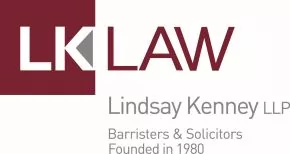- with Inhouse Counsel
- with readers working within the Banking & Credit, Healthcare and Technology industries
An executor has many responsibilities when administering an estate. These responsibilities include preserving and distributing estate assets, paying estate debts, accounting to estate beneficiaries, and ultimately acting in the best interests of the estate and its beneficiaries. An executor's role is more challenging when the estate becomes contentious, such as when beneficiaries disagree about their entitlement or how to interpret a Will. Adopting an impartial approach and seeking professional assistance can help executors navigate their duties. It can take months or years to resolve a contentious estate, and the following are important things to consider along the way.
Estate Administration vs. Estate Litigation
Distinguishing between estate administration and estate litigation early in the process is critical. Estate administration includes distributing the estate based on instructions in a Will or in accordance with other legal requirements. Estate litigation arises out of disputes regarding an estate, both outside of court and in the course of a court action. Clearly separating which duties fall in the scope of estate administration and what duties fall in the scope of estate litigation is key for executors.
Executor Capacity vs. Beneficiary Capacity
In estate litigation, executors are required to be neutral. They generally do not take a position in the litigation and only act as a representative of the estate. However, an executor may also be a beneficiary of the estate. For example, a deceased parent may have had three adult children, have a Will providing gifts to all three children, but only appoint one of those children as an executor. At times, the interests of the estate and the interests of the personal beneficiary may conflict. Executors should be careful to distinguish when they act as an executor on behalf of an estate and when they act in their personal capacity as a beneficiary. An executor may find themselves in a conflict of interest, or have their actions as executor questioned by the other beneficiaries. Further, costs arising from an executor defending an estate's interests are payable from the estate. On the contrary, costs arising from defending oneself in a personal or beneficiary capacity are not payable from the estate. In these cases, an executor will need to be careful in how they conduct themselves, including keeping financial records, communication and legal fees clearly separate.
Managing Claims against the Estate
Contentious estates can attract a variety of claims, including allegations that someone was wrongfully excluded from a Will, concerns about the validity of a Will and disagreement about what assets should be included in the estate. An executor may also have claims made against them, including allegations that they are an unfit executor, accusations that an executor has a conflict of interest and claims that an executor has mismanaged estate assets. Executors represent the estate when such disputes arise and must handle claims appropriately while also safeguarding the estate's assets. This can involve seeking legal advice to understand an executor's obligations and potential liabilities.
Managing Disputes between Beneficiaries
Conflicts among beneficiaries, such as disagreement about the division of assets or interpreting a Will, can be a major hurdle. As an executor, being impartial is crucial. While the disputes may escalate, an executor's role continues to be acting in the best interest of the estate and protecting estate assets. If there are competing claims to estate assets, an executor needs to be careful to act in a way that addresses all of the beneficiaries' interests until the issues are resolved. If an executor is also a beneficiary, then he or she should consider if any dispute with another beneficiary puts them in conflict with their duties as an executor.
Seek Professional and Legal Assistance
Contentious estates can present new responsibilities and challenges for executors. Navigating these duties often requires professional and legal expertise to ensure that executors act in accordance with the law and that the estate is protected. Estate lawyers can help guide and support executors and ensure that the executors are well-informed about their roles and obligations.
About Mackrell International – Canada - Lindsay Kenney LLP is a full service business law firm with offices in Vancouver and Langley, BC and a member of Mackrell International. Mackrell International – Canada is comprised of four independent law firms in Alberta, British Columbia, Ontario and Quebec. Each firm is regionally based and well-connected in our communities, an advantage shared with our clients. With close relations amongst our Canadian member firms, we are committed to working with clients who have legal needs in multiple jurisdictions within Canada.
This article is intended to be an overview and is for informational purposes only.


